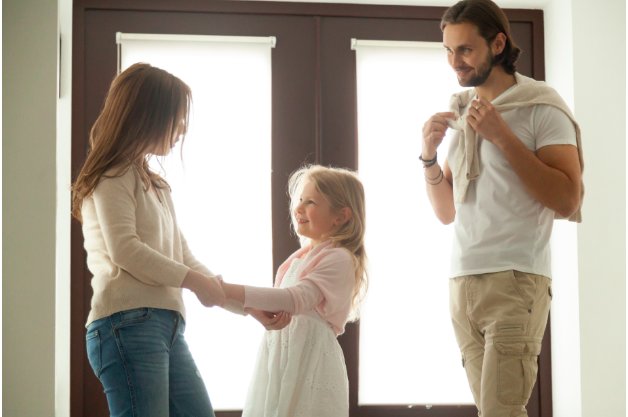Joint custody arrangements allow parents to share responsibilities and time with their children. In many cases, when prepared correctly, a joint custody arrangement can be a successful outcome for former partners and their children.
Going through a separation or divorce, and pursuing a joint custody arrangement, can cause significant stress and emotional turmoil. It is, therefore, imperative to seek expert legal advice, from an experienced divorce lawyer in Melbourne. In the meantime, follow this guide to making shared child custody work for you, your ex, and your kids.
- Cooperate with your Former Spouse
There is no “one size fits all” care and living arrangement for children when parents separate. Shared custody works best when both parents set aside their differences for the moment, in order to co-create a custody arrangement, that is in the best interests of the children.
During this process you and your former partner can consider the following aspects, that are unique to all families:
- Your children’s ages and personalities
- Your work schedules and other commitments
- The distance between each parents home
- Any academic or other extracurricular activities which your children attend.
Your children also need to have an ongoing input in the process. Whilst this will likely be minimal for the younger years, it is important for your children’s voices to be heard as they grow older. A child who feels that their input was received, is more likely to be agreeable to the schedule.
- Adhere to the Arrangement
When a joint custody arrangement has been finalised, it is important to respect and adhere to the agreed terms. This means respecting your ex-partners rights and scheduled time with their children.
For joint child custody to work, communication is key. So, you need to find a method of communication that works for you and your ex. Finding an arrangement that suits both parties will take time, and involves trial and error. It will also evolve as children grow older, work schedules change and living arrangements are altered. Fostering open lines of communication with your ex partner, is therefore key to adhering to the arrangement and keeping it flexible in light of all of life’s changes.
- Speak No Evil
Many relationships end with significant feelings of hurt, betrayal, anger and sadness on both sides. When around your children however, it is important not to speak negatively about the other parent. Making negative comments about your former partner in the presence of your shared children is counter-productive in helping to normalise and develop a meaningful and productive joint care arrangement.
Be polite when you are dropping off your children or picking them up, as this will help them cope with the transition. Your children should never act as a go-between, and should never be drawn into fights. Showing interest in the time they spend with the other parent, is also vital to demonstrate your support of their ongoing relationship.
- Maintain Routines
Divorce and joint custody arrangements are often confusing and upsetting for children, and can take a significant amount of time to adjust to. For this reason, it is important to keep normal routines where possible. Having stability in their routine, can help children adjust to the significant changes within their home life.
Once a joint custody arrangement has been finalised between yourself and your ex-partner, it is important to explain the arrangement with your children. If they will spend some time with each parent, explain how this will work in practical terms. This can alleviate any concerns, and provide a schedule for your children to follow. (xclusivepop.com) This helps children feel safer, and allows for an easier transition into the new arrangement.
~
It will take time for yourself, your former partner and your children to adjust to these changes. Fortunately, by following these tips, and with so many other avenues for support available, you and your family can take positive steps to make joint custody work.
Laura Costello is a graduate of International Relations at Latrobe University. She is passionate about the law, the power of social media, and the ability to translate her knowledge of both common and complex topics to readers across a variety of mediums in a way that is easy to understand.


















